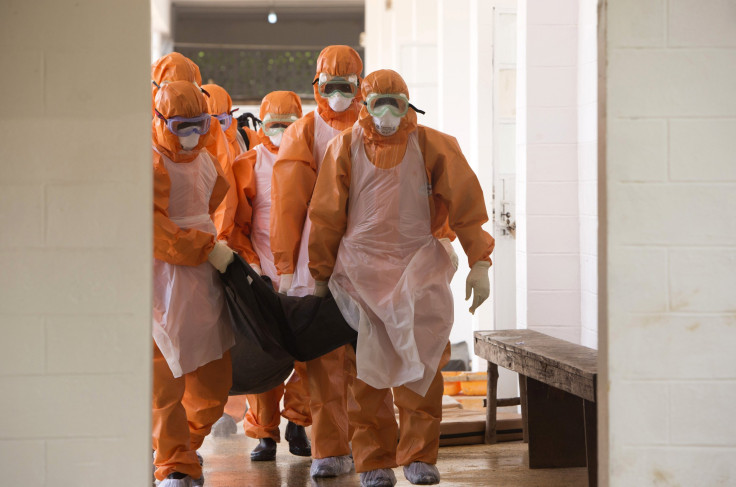Ebola Virus Outbreak: Sierra Leone Health Workers’ Strike Leaves Dead Bodies In Streets

A health workers strike in Sierra Leone that resulted in the bodies of Ebola victims being left out in the streets and in homes has been resolved, the country’s deputy health minister said Wednesday. The dispute occurred after 600 burial team members expressed grievances over hazard pay.
Workers in Freetown, the country’s capital and largest city, said they had not been paid for a week because of backlogs, local media reported Wednesday. Officials said the money to pay burial teams had been deposited in the bank but had not been paid out. Deputy health minister Madina Rahman said in a radio broadcast Wednesday morning that the ministry would “investigate the delay.”
Ebola burial teams in West Africa are tasked with retrieving the bodies of people not hospitalized who die from the virus. Team members wear protective gloves, goggles, boots and multiple layers of clothing to shield them from infection. Sierra Leone is one of the countries hit the hardest by the Ebola outbreak that has infected over 7,400 people and killed more than 3,400 across West Africa. There are 2,100 confirmed cases of Ebola in Sierra Leone, with over 600 dead.
The strike was especially troubling because the bodies of people killed by the virus are highly contagious. A spokesperson for Sierra Leone’s Health Ministry called the situation “very embarrassing,” according to the Associated Press. The burial teams strike follows another controversy over a shipping container filled with medical gear and mattresses that has been delayed at the shipping port for over a month.
Experts say the Ebola outbreak could cost affected countries over $30 billion by the end of 2015, the World Bank estimates. The cost includes containment measures, treatments, pay for emergency health workers and economic losses.
"With Ebola's potential to inflict massive economic costs on Guinea, Liberia and Sierra Leone and on the rest of their neighbors in West Africa, the international community must find ways to get past logistical roadblocks and bring in more doctors and trained medical staff, more hospital beds, and more health and development support to help stop Ebola in its tracks," Jim Yong Kim, president of the World Bank Group, said in a statement.
Britain will send 750 troops to Sierra Leone to help combat Ebola, according to the BBC. The U.K. will also send a medical ship and three helicopters to ramp up containment and treatment efforts.
© Copyright IBTimes 2024. All rights reserved.












